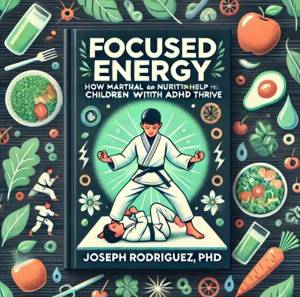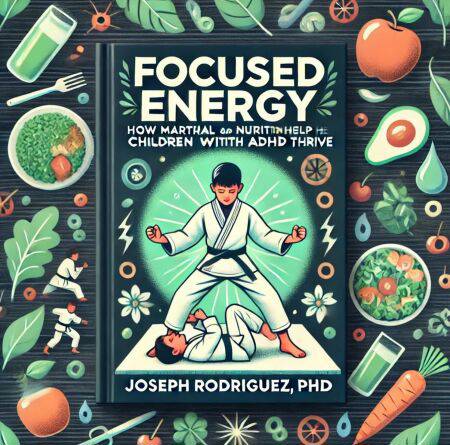
- Retrait gratuit dans votre magasin Club
- 7.000.000 titres dans notre catalogue
- Payer en toute sécurité
- Toujours un magasin près de chez vous
- Retrait gratuit dans votre magasin Club
- 7.000.000 titres dans notre catalogue
- Payer en toute sécurité
- Toujours un magasin près de chez vous
Focused Energy: How Martial Arts and Nutrition Help Children with ADHD Thrive EBOOK
Joseph RodriguezDescription
In Focused Energy: How Martial Arts and Nutrition Help Children with ADHD Thrive, Joseph Rodriguez, PhD, blends decades of martial arts expertise and behavioral psychology to present a comprehensive guide for parents and educators. This book explores how the unique combination of Brazilian Jiu-Jitsu (BJJ) and proper nutrition can serve as holistic tools in helping children with ADHD not only manage their symptoms but thrive in all aspects of life.
Drawing on the power of physical activity, Focused Energy emphasizes how BJJ offers more than just exercise. Martial arts create a structured environment where children with ADHD can challenge both their minds and bodies. Rodriguez explains how the mental demands of BJJ—such as learning techniques, anticipating an opponent's moves, and adapting strategies—stimulate the same areas of the brain that struggle with focus and impulse control in children with ADHD. Beyond physical movement, martial arts build mental discipline, improve emotional regulation, and provide children with a sense of progress and accomplishment, which boosts their self-esteem.
The book also highlights the essential role of nutrition in managing ADHD symptoms. Proper diet is a critical factor in supporting brain function, helping children focus, regulate their emotions, and maintain consistent energy levels throughout the day. Rodriguez explains how specific nutrients—such as omega-3 fatty acids, proteins, and magnesium—can help mitigate ADHD symptoms, while processed foods and additives may exacerbate hyperactivity and distractibility. Practical meal plans and tips make it easy for parents to implement these nutritional strategies at home.
Rodriguez, with his deep knowledge of behavioral psychology, breaks down how ADHD affects children's cognitive and emotional development. He addresses the emotional toll ADHD can have on children, such as feelings of frustration, failure, and isolation, while offering actionable strategies to break this cycle. Rodriguez teaches readers how martial arts provide a safe space for children to explore their capabilities, handle failure constructively, and develop resilience—skills that extend beyond the mat.
This guide doesn't just focus on individual components like exercise or diet in isolation; instead, it offers a complete picture of how martial arts and nutrition, when combined, form a powerful support system for ADHD management. Rodriguez integrates his insights as both a coach and a behavioral expert, emphasizing how parents can implement these strategies at home, giving their children long-term tools for success.
Through detailed chapters, parents will learn:
• The science behind ADHD and why physical exercise, like Brazilian Jiu-Jitsu, can improve focus and impulse control.
• How martial arts offer individualized growth and a sense of achievement, building confidence and discipline in children with ADHD.
• The importance of proper nutrition for children's brain function and how diet influences behavior, focus, and emotional regulation.
• Practical ways to blend martial arts training and a healthy diet into a child's daily routine, empowering parents to create lasting change.
Rodriguez's approach is both compassionate and actionable, addressing parents' concerns about conventional ADHD treatments, such as medication, and offering a holistic alternative that focuses on natural, sustainable methods for managing ADHD symptoms.
Spécifications
Parties prenantes
- Auteur(s) :
- Editeur:
Contenu
- Langue:
- Anglais
Caractéristiques
- EAN:
- 9798224486809
- Date de parution :
- 06-10-24
- Format:
- Ebook
- Protection digitale:
- /
- Format numérique:
- ePub







